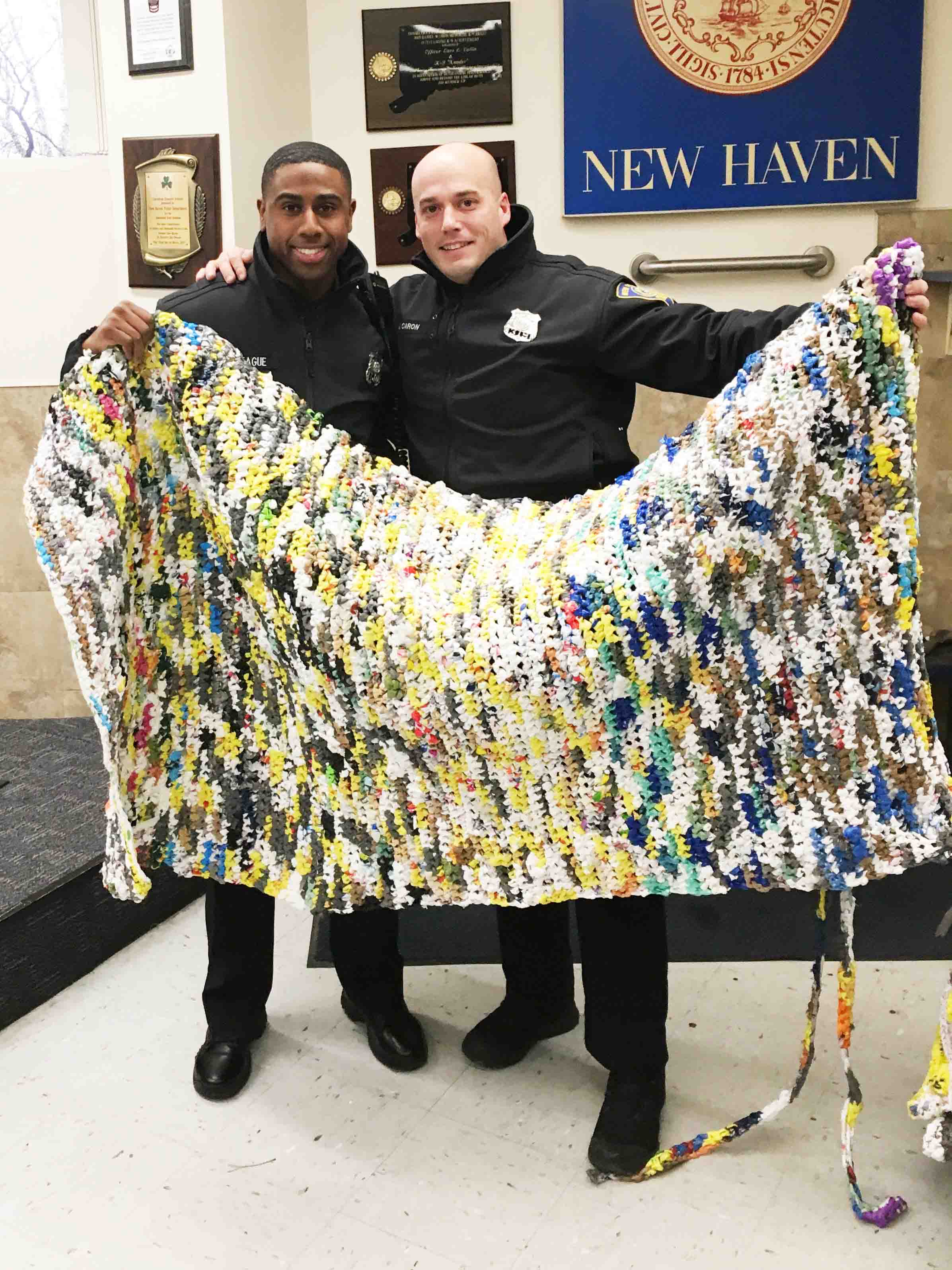
With wind chill factors in the Elm City dropping below zero degrees last week, New Haven Mayor Toni Harp activated the city’s Severe Cold Weather Protocol at 8 a.m. on Jan. 30 to ensure that outreach programs reach homeless individuals exposed to the cold.
During this activation, the city coordinates its response with the New Haven Police Department and Community Services Administration to ensure that outreach programs reach people in the cold. On Thursday, New Haven Patrol Commander Lieutenant Herb Sharp sent an announcement to New Haven Police Department patrol officers and supervisors explaining how they should assist people who are homeless in the cold weather.
“The Patrol Division will be focused on engaging our homeless population to ensure they are informed of the current extreme cold weather,” Sharp announced. “Officers have been placed on assignment to specifically visit known areas of our city where homeless encampments can be found, as well as through chance encounters. This is an all-encompassing effort by the division to engage our homeless population.”
The City of New Haven, in collaboration with the Emergency Operations Center, activates the Severe Cold Weather Protocol when the wind chill factor — the temperature a person feels due to the wind — is forecasted to be below 18 degrees Fahrenheit during a 48-hour period, according to Rick Fontana, the city’s director of emergency operations.
Sharp mandated that at least two officers citywide must be deployed to primarily assist the homeless. He wrote that when appropriate, officers should provide or coordinate transportation of the homeless to a shelter or warming center. Additionally, the officers are tasked with distributing donated blankets.
“Officers are expected to make every effort to communicate with our homeless population and afford them our services to ensure their safety through this weather event,” wrote Sharp.
He asked that the department follow the City of New Haven Severe Cold Weather Protocol and coordinate the department’s efforts with Fontana’s from Emergency Operations.
City Spokesman Laurence Grotheer told the News that New Haven Police Department personnel proactively seek and then help homeless residents secure shelter and safety from what “could otherwise be life-threatening conditions.”
Fontana said that the city’s Emergency Operations Center and Community Services Administration coordinated with city shelters to expand openings to include 75 additional available beds. Additionally, they coordinated to keep shelters open 24/7 until temperatures rise above freezing. Fontana said that the city’s emergency overnight warming shelter remains open for all hours. All public libraries serve as warming centers during normal business hours as well, Fontana said.
According to Fontana, Harp provided strict guidance to ensure that the NHPD looks for any potential homeless individuals on the street. The officers bring anyone who is in danger from the cold to one of the locations via a patrol vehicle.
The Emergency Operations Center works closely with Amtrak Police to advise homeless individuals at the train station of available shelter and arrange transportation if needed, Fontana said.
While Fontana said he did not have an exact number of those helped during the weekend period, he told the News that the city’s shelters, as well as the overnight warming center, were close to full over the weekend, with roughly 400 individuals using the services during that time period. He said that during a Severe Cold Weather Protocol, nobody is turned away.
“The overnight warming center has a 65 capacity and many cold nights that is the amount inside. I think the results speak for themselves,” said Fontana.
Fontana told the News that the city did not receive any “cold exposure calls” — a call to 911 for a victim who suffers from signs or symptoms of cold-related illness or injury, such as frostbite or hypothermia.
In his announcement to the New Haven Police Department, Sharp also said that officers must distribute donated, handmade blankets. He was referring to the product of a collaboration between the New Haven Police Department and community volunteer Susan Skalka, which brings a team of around 40 people together to collect, cut and crochet used plastic bags into bed-rolls to be donated to homeless individuals.
“There didn’t seem to be much sense in providing them to shelters. Those at shelters have beds for the night. Some in our community, though, do not utilize shelters or ‘soup-kitchens,’” read the official New Haven press release about Skalka’s project. “Some prefer or feel more at ease bedding down outside or in their makeshift ‘homes.’ Those are the people we feel could most use these (surprisingly) comfortable bed-rolls.”
According to the release, it takes approximately one month to crochet a blanket.
Sammy Westfall |sammy.westfall@yale.edu .
Angela Xiao | angela.xiao@yale.edu .







